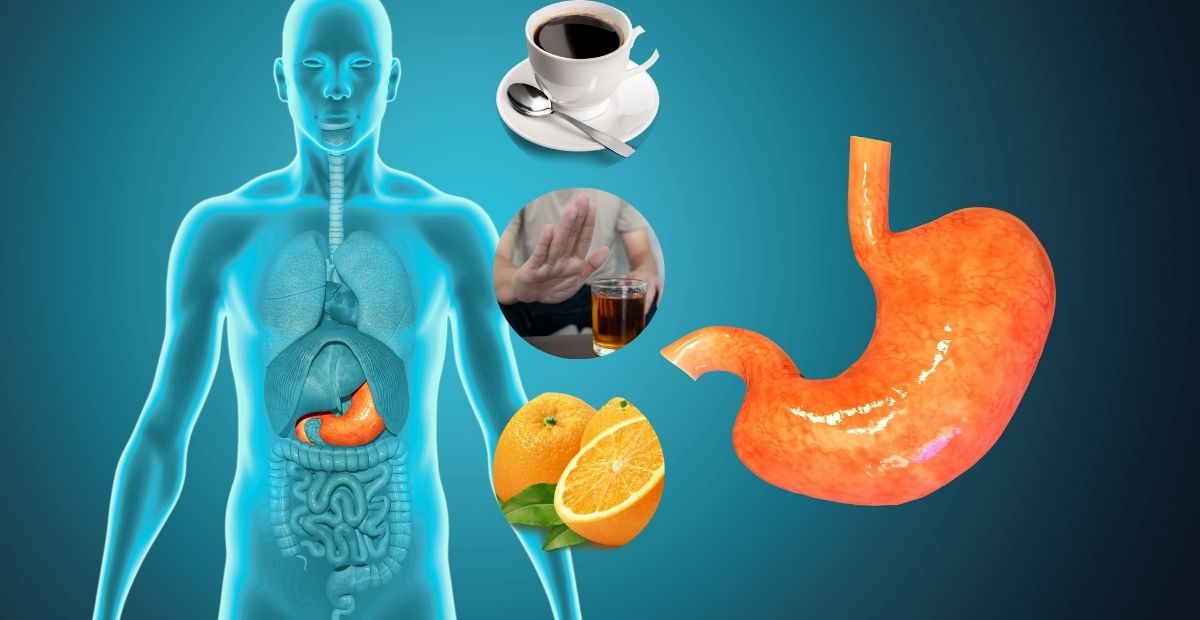As humans, there are countless things that escape our awareness. And this encompasses our entire physical form. It’s surprising how little we know about our own bodies. It’s clear that there’s a lot of knowledge we’re missing.
It is a fact that no one has ever witnessed their own anatomy, resulting in a limited understanding of it.
However, it’s important to be aware of the potential consequences of consuming foods that are not recommended on an empty stomach.
Consuming certain foods on an empty stomach can jeopardize your health. Certainly, there are several factors that can potentially harm the lining of your stomach. Having an idea and taking precautions is crucial.
If you’re under the impression that eating whatever you please on an empty stomach is inconsequential, it’s important to recognize the potential risks involved.
We’re here to provide you with some valuable insights on what not to do when you haven’t eaten. Here are five important things to avoid on an empty stomach.
1. It is important to avoid taking anti-inflammatory drugs on an empty stomach. When a medication is prescribed, patients are provided with instructions that specify the dosage and the recommended time for taking it.
However, it is important to note that anti-inflammatory drugs should not be taken on an empty stomach. Typically, there is no requirement to take anti-inflammatory drugs like ibuprofen and aspirin on an empty stomach.
This is because they have a lower chance of causing irritation or damage to the stomach lining. These medications work by inhibiting COX enzymes, which are involved in the inflammatory process. In contrast to certain medications that can potentially irritate the stomach, anti-inflammatories are known for being gentle on the stomach and not causing any direct harm to the stomach lining.
Taking them with a meal may help reduce the likelihood of stomach discomfort. However, using anti-inflammatories for a long time or in excessive amounts, especially without proper medical supervision, can lead to the formation of stomach ulcers, bleeding, and kidney damage. Following the recommended dosages and seeking medical advice before using them for long periods is of utmost importance.
2. Consuming alcohol on an empty stomach can have serious consequences. Each alcoholic beverage can vary in its alcohol content. It is evident that each milliliter contains a certain percentage of alcohol.
Multiple studies have consistently shown that alcohol does not provide any nutritional benefits. Water is the sole source of nutrients. Considering the composition of the alcohol, it appears that the water content might be on the higher side.
However, there are other substances present that contribute to its harmful nature. Drinking alcohol without eating can have detrimental effects on the body due to the way it is metabolized. When alcohol is consumed on an empty stomach, it quickly enters the bloodstream, without the need for food. Due to this rapid absorption, the blood alcohol concentration increases quickly, resulting in intensified effects.
Furthermore, a lack of food can speed up the body’s absorption of alcohol and amplify its effects. These factors may contribute to a faster onset of intoxication, impaired judgment, and an increased risk of accidents or alcohol poisoning.
Consuming potent alcoholic beverages on an empty stomach can further amplify these risks due to their elevated alcohol concentrations. When alcohol abuse is prolonged and proper nutrition is neglected, it can cause significant harm to different organs, including the stomach lining and liver.
Severe health complications can arise, such as gastritis, liver disease, and malnutrition. Consuming alcohol alongside a meal is recommended, as it can help to slow down the absorption of alcohol, reduce its impact, and protect the body from potential harm.
3. Consuming acidic fruits can have negative effects on your digestive system and overall health. Foods with a high citric acid content can be quite acidic and may cause a reaction with the lining of your stomach if consumed on an empty stomach.
Fruits with high acidity, such as lemons, oranges, and pineapple, may lead to acid reflux and potentially disrupt your stomach. When you consume these fruits on an empty stomach, it can lead to discomfort and negative reactions in your stomach.
Consuming acidic fruits on an empty stomach can exacerbate acid reflux, resulting in a sensation of burning in the chest or throat. Over time, the stomach lining may become irritated as a result of the elevated acid levels, leading to potential inflammation, gastritis, or ulcers.
Eating acidic fruits without balancing them with other foods can weaken the stomach lining, making it more susceptible to damage from digestive acids.
4. If you have a deep appreciation for coffee, it’s time to reconnect with your love for it. I love coffee, especially in the morning. However, it’s not advisable to drink it on an empty stomach. Coffee can sometimes lead to digestive discomfort due to its ingredients.
Drinking a cup of coffee on an empty stomach can have harmful effects on your health. Coffee contains caffeine, which can contribute to increased acidity in the stomach.
5. Endless debates and discussions are the least desirable course of action. Many researchers have confirmed that hunger can negatively impact cognitive function, mood, and decision-making abilities.
Exercising self-control can be quite draining, and engaging in constant arguments can also be energy-consuming. Without sufficient energy, it becomes challenging to maintain composure. When hunger strikes, our behavior can take a turn, and our ability to think clearly may suffer. It’s important to remember that arguing on an empty stomach can be unproductive.






